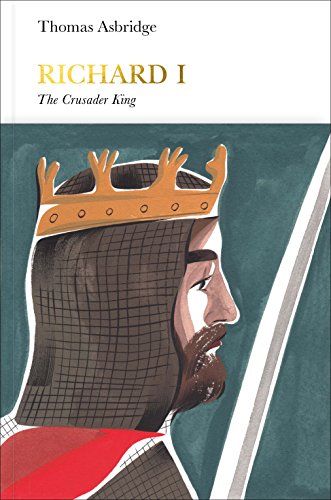Richard I

Richard I’s reign is both controversial and seemingly contradictory. One of England’s most famous medieval monarchs and a potent symbol of national identity, he barely spent six months on English soil during a ten-year reign and spoke French as his first language. Contemporaries dubbed him the ‘Lionheart’, reflecting a carefully cultivated reputation for bravery, prowess and knightly virtue, but this supposed paragon of chivalry butchered close to 3,000 prisoners in cold blood on a single day. And, though revered as Christian Europe’s greatest crusader, his grand campaign to the Holy Land failed to recover the city of Jerusalem from Islam.
Seeking to reconcile this conflicting evidence, Thomas Asbridge’s incisive reappraisal of Richard I’s career questions whether the Lionheart really did neglect his kingdom, considers why he devoted himself to the cause of holy war and asks how the memory of his life came to be interwoven with myth. Richard emerges as a formidable warrior-king, possessed of martial genius and a cultured intellect, yet burdened by the legacy of his dysfunctional dynasty and obsessed with the pursuit of honour and renown.
